You won’t have to worry about lions, tigers, bears, or snakes on Kauai. In fact, Kauai is a veritable paradise with virtually no dangerous animals on the island. But there are a few critters that you need to be aware of.
Wildlife
Chickens and Roosters
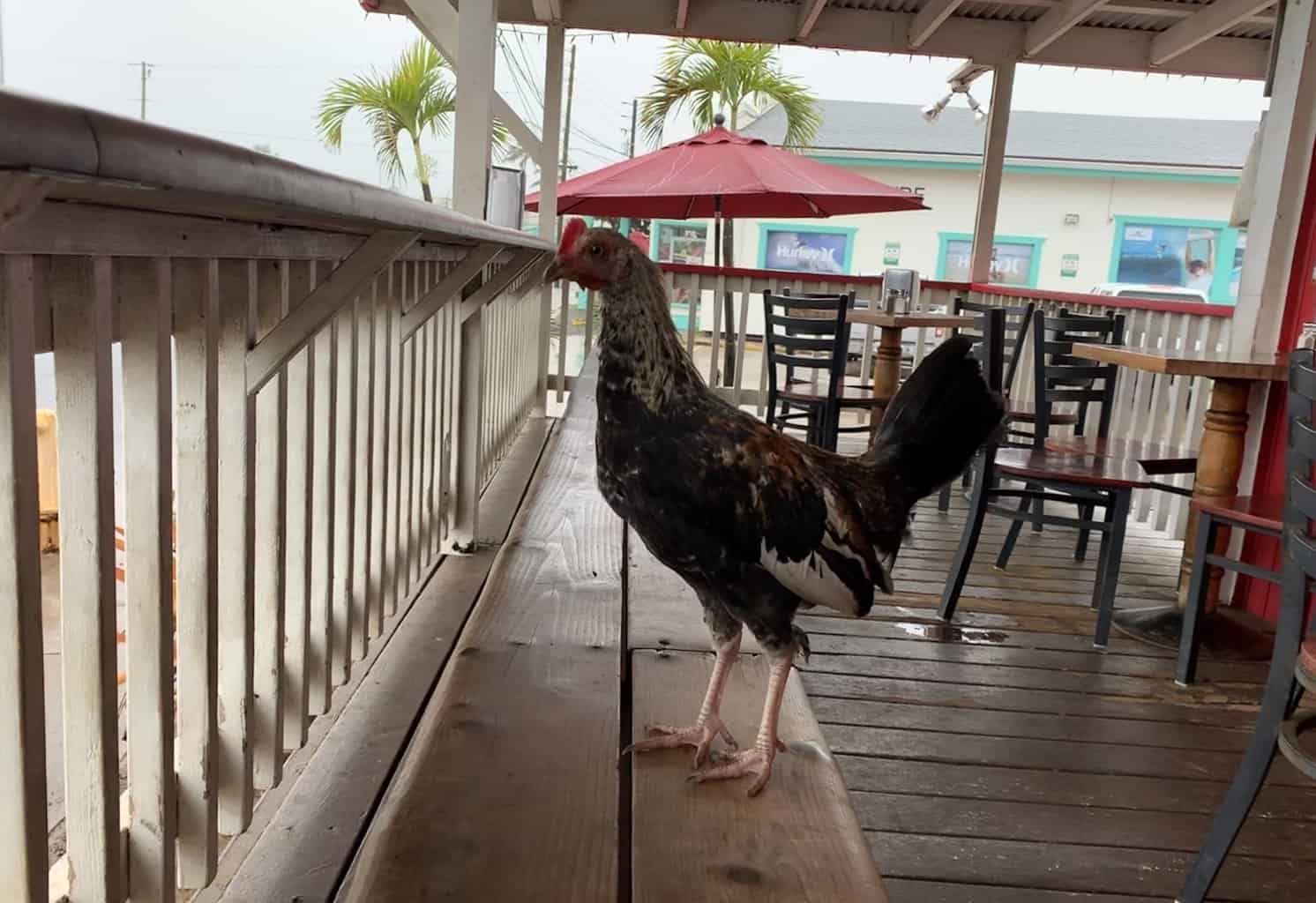
They are all over the place – in parking lots, on golf courses, at hotels. Some say the chickens escaped from their housing during Hurricane Iniki, while others insist they’ve been around since the first Polynesian settlers. Whatever the case, the birds are harmless.
Don’t bother them, they won’t bother you. Many local establishments will ask that you do not feed the birds as they don’t want them around. In fact, some establishments have a capture and release program where they relocate the birds to more remote parts of the island.
Feral Cats
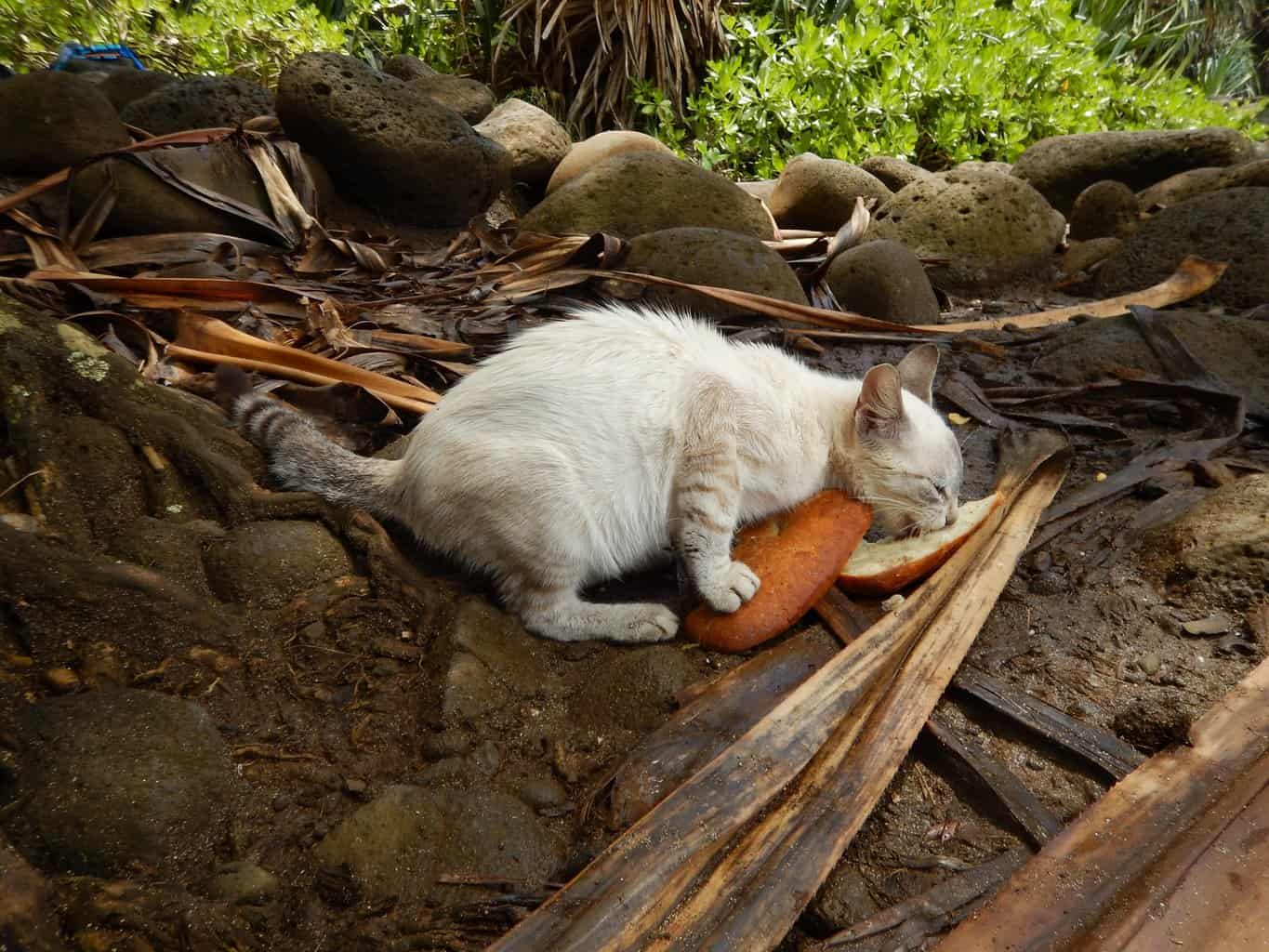
There are more than a few feral cats hanging around on Kauai. Some say the cats are another result of Hurricane Iniki, when many dogs and cats were separated from their owners and those dogs and cats had litters in the wild.
You probably won’t get close to the cats and they’ll probably stay away from you. Again, as with the birds, many establishments will ask that you do not feed the cats as they don’t want them around. However, the cats do help control the local rat and mouse population. Above photo: A feral cat at Hanakapiai Beach.
Nene Birds
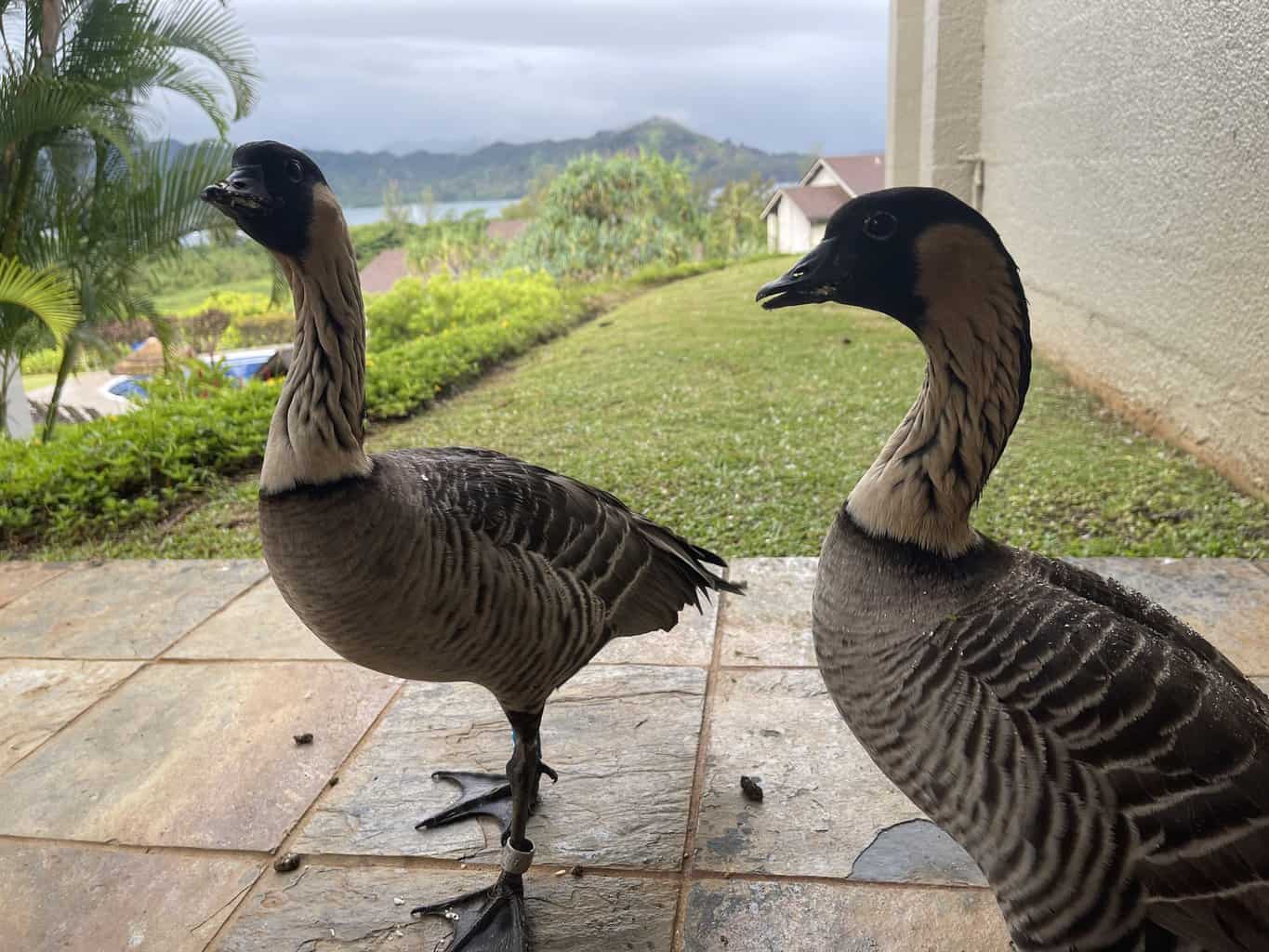
Nene, also known as the Hawaiian goose, is the official state bird of Hawaii. The birds are especially prominent on Kauai’s North Shore, especially in the Kilauea, Princeville and Hanalei areas. The birds are friendly, but it is advised to keep your distance.
Nene birds are federally protected and listed as an endangered species. It is unlawful to touch, feed, harass or chase the nene. Drive slow, especially in the Hanalei area near the taro fields, to avoid hitting the birds.
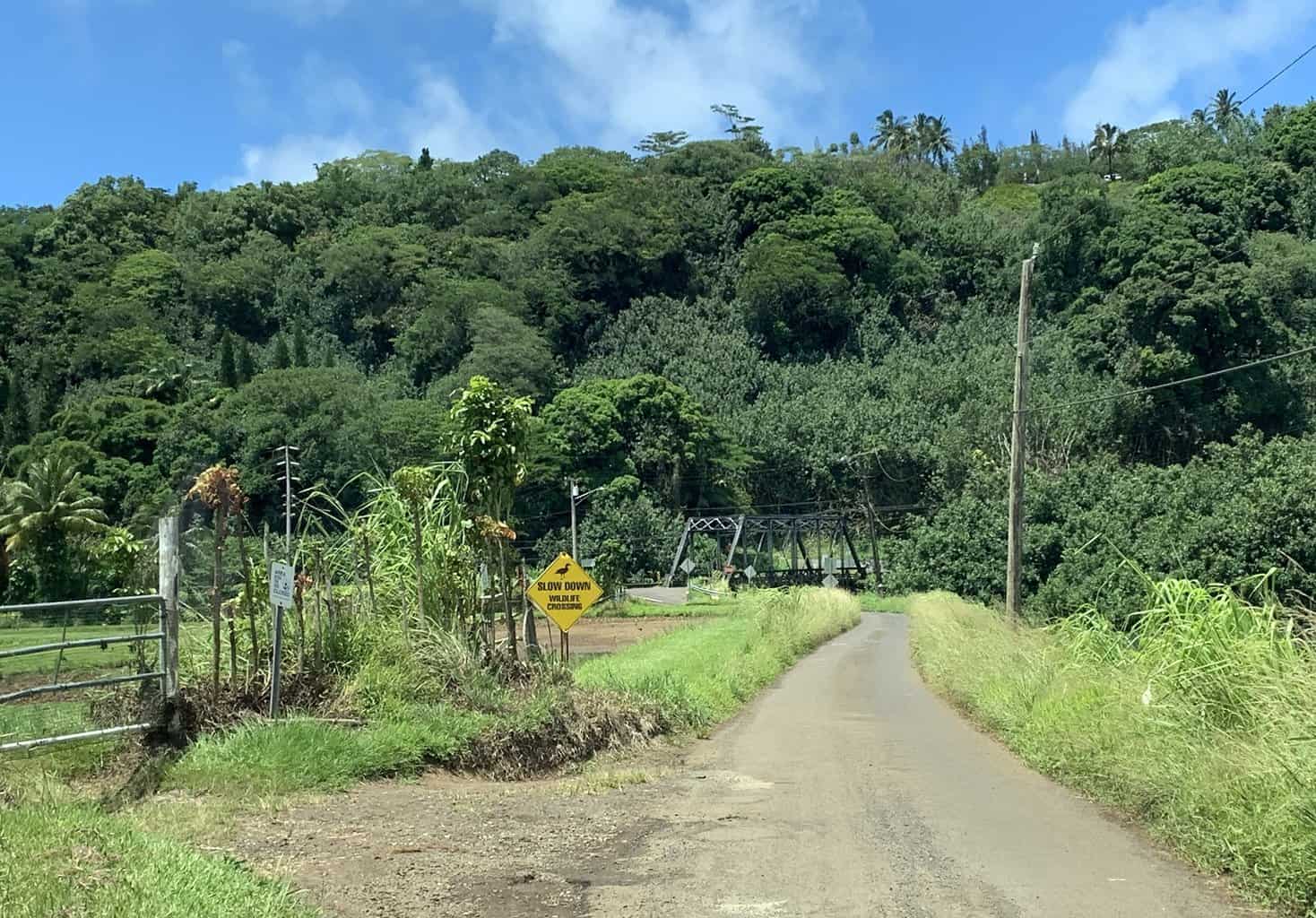
This sign on Ohiki Road adjacent to the Hanalei taro fields advises drivers to slow down (due to nene birds and other wildlife in the area).
Rats
Rats are common around the island but are generally not often seen. Keep your accommodations clean and they’ll go somewhere else. Dispose of litter properly and place food in airtight containers.
Geckos (Salamanders)
Geckos are non-poisonous and local residents believe it’s a sign of good luck to have one in the home, probably because they eat insects. But you probably don’t want to have lizards in your accommodations, so it’s best to keep screen doors and windows closed.
Cane Spiders
These spiders are hairy and can be quite large. They are not poisonous but can bite if you provoke them, so don’t provoke them.
You’ll certainly want to remove them from your accommodations. Use a container to trap the spider and then slide the lid under the container.
Centipedes
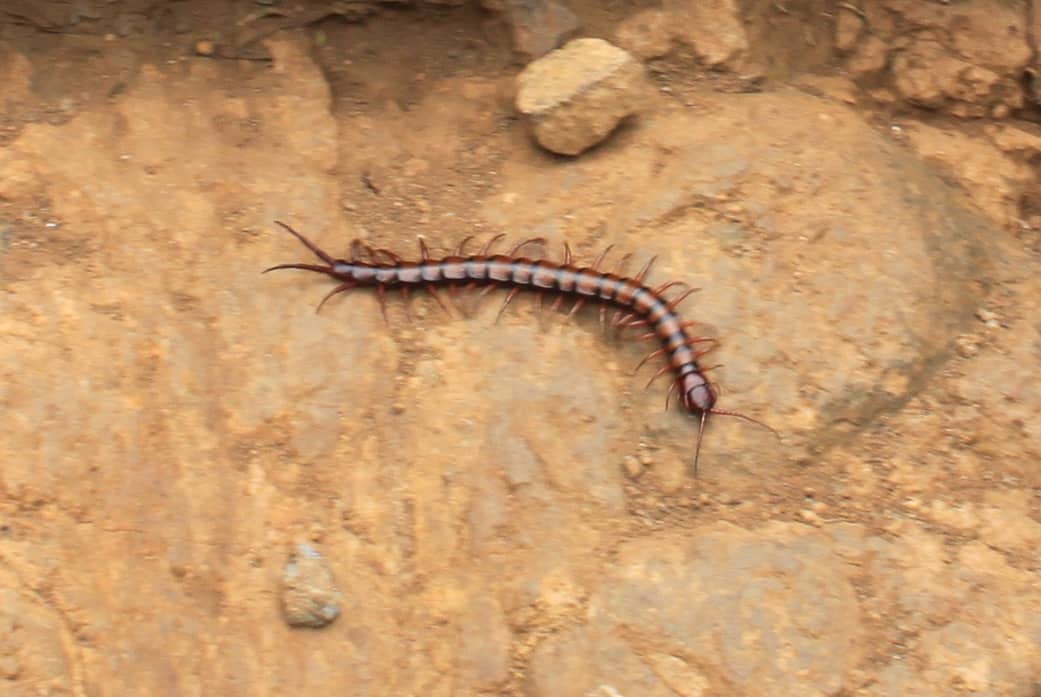
Centipedes are numerous on Kauai, and their stings can be painful. Wear shoes or sandals at night. Shake out your shoes and clothing before putting them on. Here is a centipede on the Kalalau Trail.
Birds
Leave your food out on an outdoor table for thirty seconds, and it will be gone in thirty seconds. The birds are considered nuisances at many establishments and they ask that you do not feed the birds either intentionally or inadvertently.
Scorpions
Scorpions are rarely seen on the island, but possibly might be found in drier areas of the island. Stay away from them.
Feral Pigs
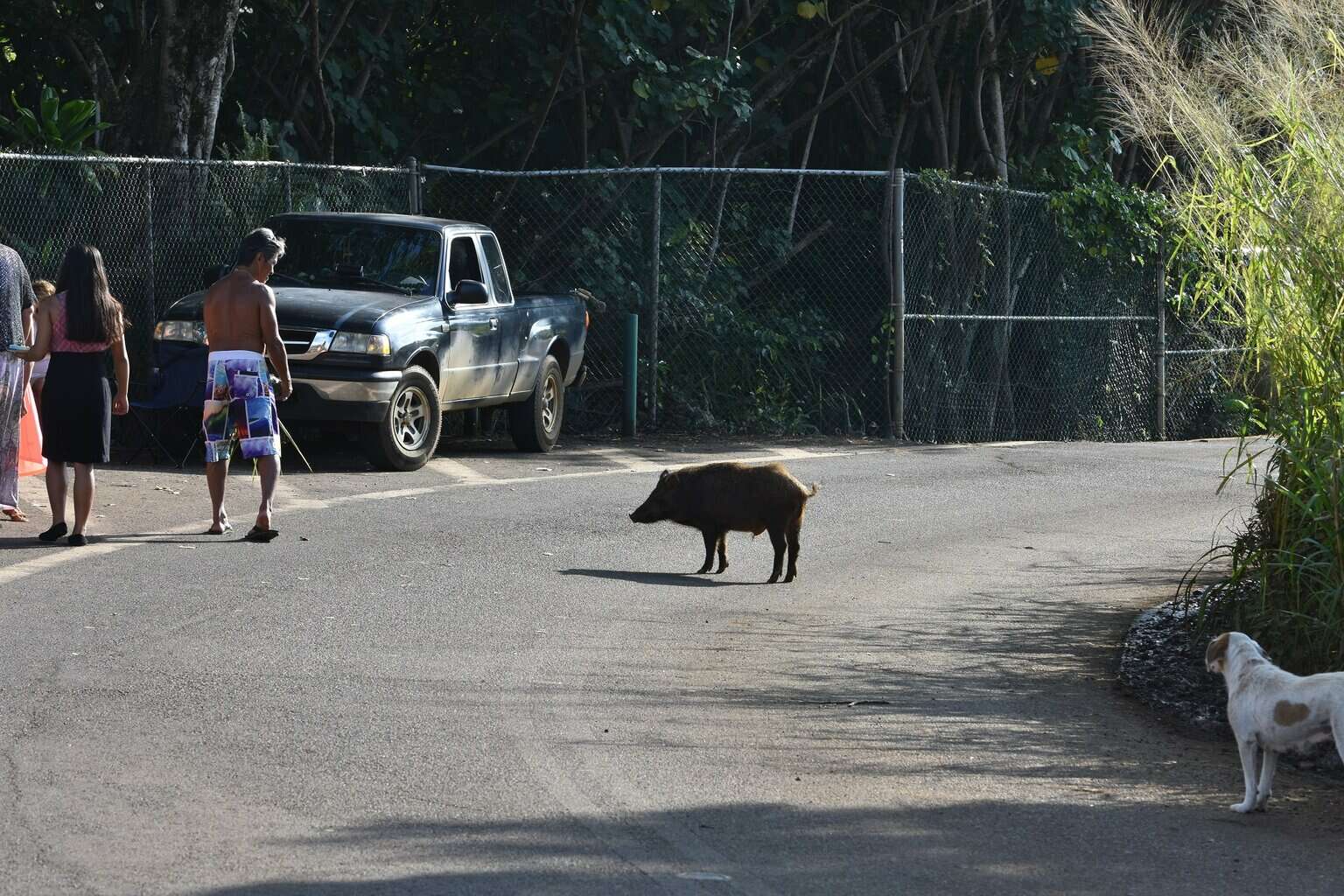
There are thousands of feral pigs on the island, but it’s doubtful you will see a pig in the wild. Most pigs/boars are hiding from hunters in the vast interior of Kauai. It’s possible you might see some wild pig hunters in the Kokee State Park area, especially on the Alakai Swamp Trail.
The pigs are destructive to the Kauai environment and boundary fences are set up around the island to limit their movement. Above photo: A vendor feeds a wild pig in the Wailua Falls parking area.
Mountain Goats
Another elusive animal on the island, Kauai’s mountain goats are rarely seen by visitors. Sometimes, mountain goats can be seen or heard on Kauai’s mountain and cliff trails, including the Kalalau Trail and Waimea Canyon area trails such as the Poomau Canyon Ditch Trail.
Black-tail Deer
Perhaps the most elusive animal on Kauai, there are hundreds of black-tail deer in the Waimea Canyon area. The deer were first introduced to Kauai from Oregon in 1960.
Marine Life
Hawaiian Monk Seals
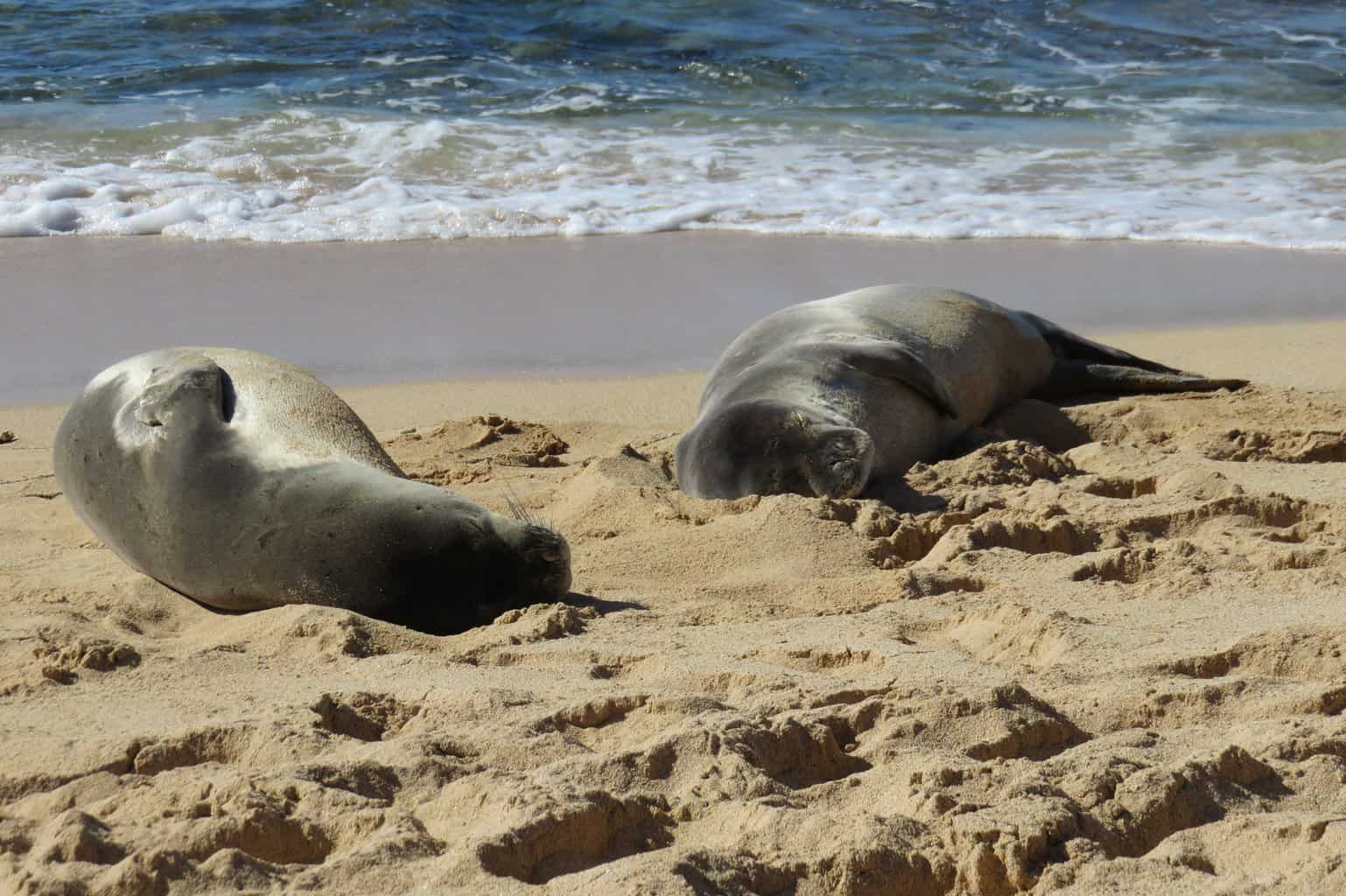
Hawaiian Monk Seals can be found resting on many island beaches, including famously, Poipu Beach. With fewer than 1,500 remaining in the wild, the seals are classified as critically endangered species.
If you see a seal, keep your distance. It is illegal to touch, harass, harm, or kill a monk seal with fines up to $50,000.
Jellyfish (Portuguese Man-of-War)
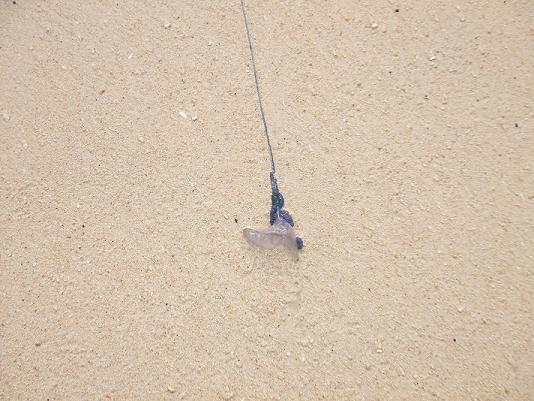
Jellyfish will sometimes wash ashore and can be found in the beach sand. Do not step on them or come into contact with them. Their sting can be quite painful. If you see a large number washed ashore, it might not be a good idea to go in the water.
Coral
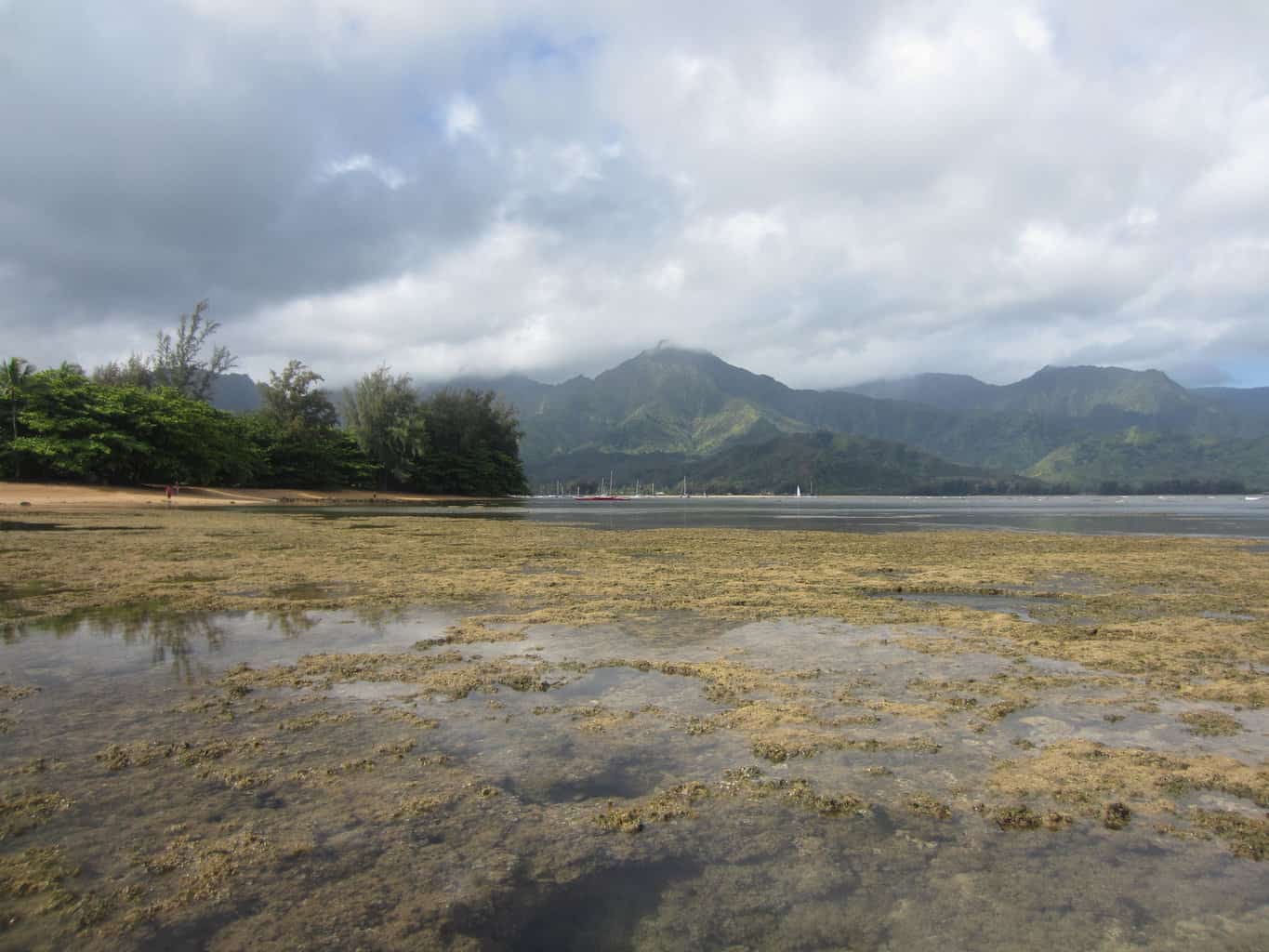
The coral reef at Puu Poa Beach at low tide.
Coral is actually a living organism, classified as an animal. Kauai’s coral reefs, as are many reefs around the world, are under threat from environmental degradation caused by a variety of human factors. Y
ou can do your part in protecting coral reefs by not walking on coral and using Hawaii-approved reef-safe sunscreen. Also, coral can cause nasty cuts, scrapes and slow-healing wounds. Avoid contact if possible. Thoroughly clean and disinfect any wounds caused by coral.
Sea Urchins
Commonly found among coral or lava rocks, sea urchins look like black pin cushions and have stinging spines. If stuck, the spine(s) should be removed and the wound area cleaned and disinfected.
Sea Turtles

Sea turtles, known locally as honu, are often seen resting on beaches and swimming offshore. Sea turtles are especially abundant in swimming along Kauai’s rocky coastlines. The turtles are prominent on Kauai’s southern coast including the Poipu and Mahaulepu areas and along the northern coast in the Princeville area.
Sea turtles are an endangered and protected species, with large fines for interfering with or touching the turtles. Use caution if you are swimming in areas with turtles. Very rarely, turtles are shark food and you don’t want to be shark food.
Sharks
Shark attacks are very rare on Kauai but they do occur. To minimize your risk of a shark attack, don’t swim too far out from shore, don’t swim with a bleeding wound, don’t swim at dusk, don’t swim near ships that are fishing, and don’t swim in murky water. Be wary if fish suddenly flee the area.

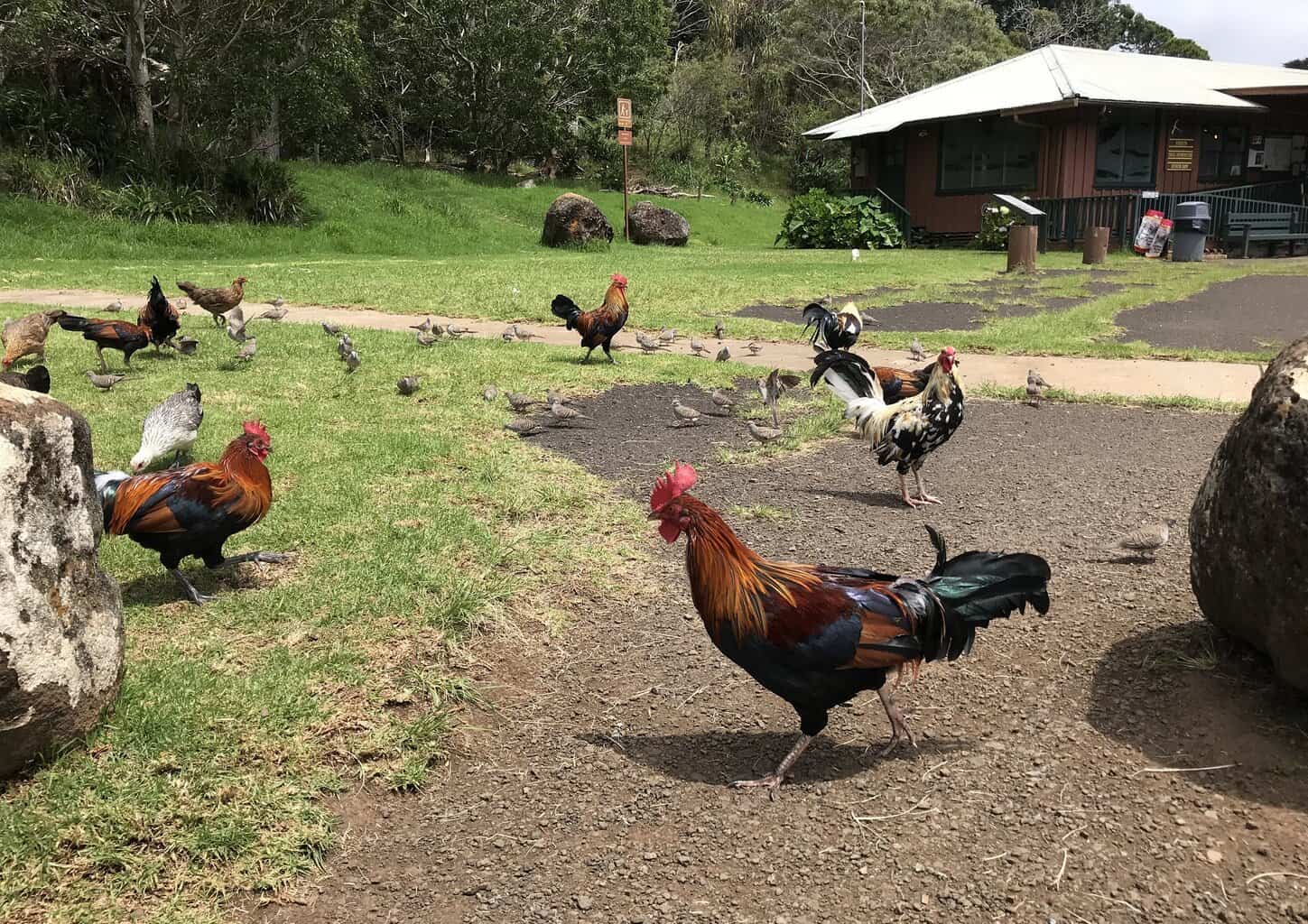
Leave a comment